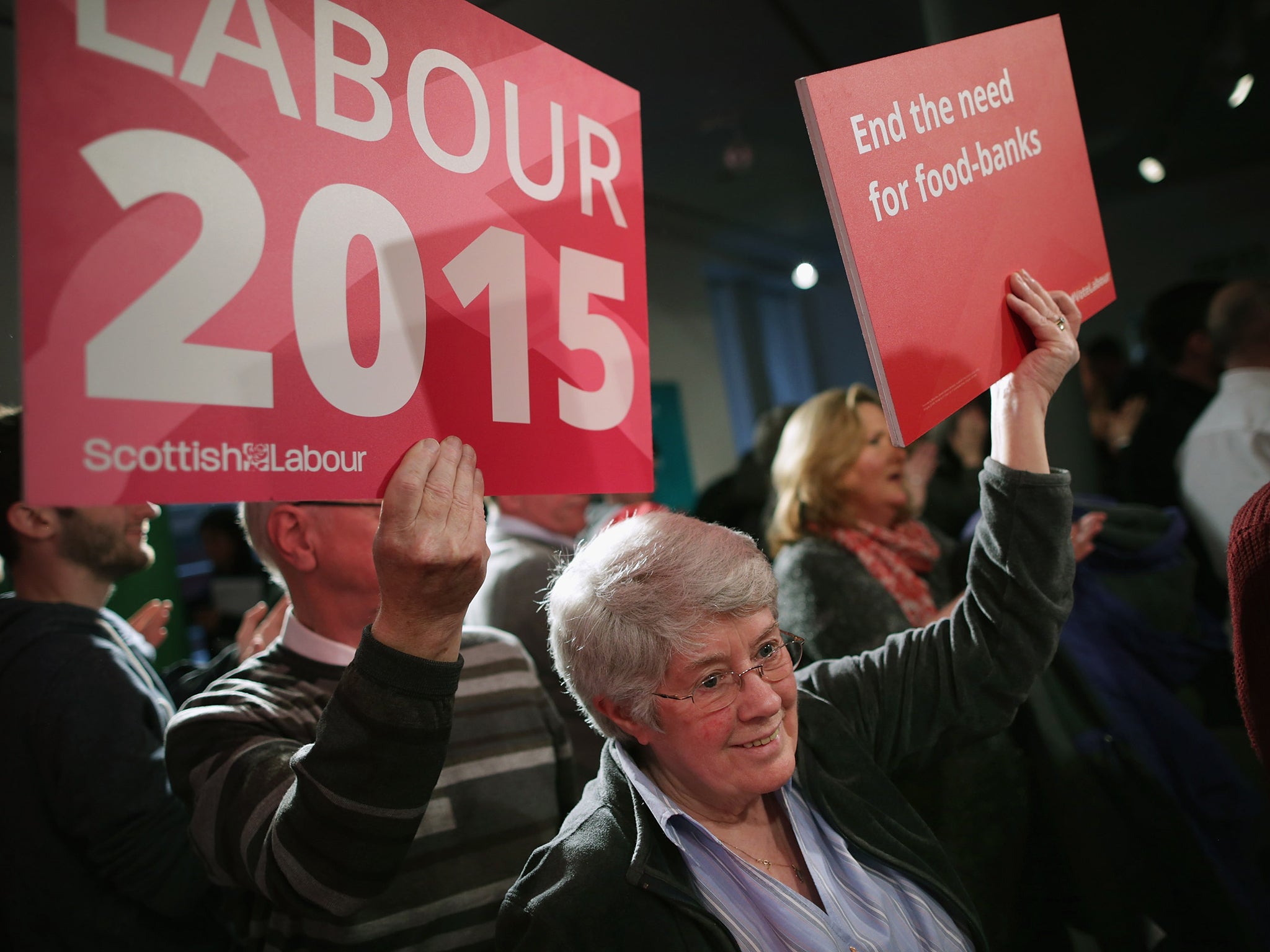Scottish Labour will struggle to emerge from its political wilderness
The nuclear issue is likely to be the dominant policy issue in Perth, and the SNP has long deployed it to outflank Labour on the left

Your support helps us to tell the story
From reproductive rights to climate change to Big Tech, The Independent is on the ground when the story is developing. Whether it's investigating the financials of Elon Musk's pro-Trump PAC or producing our latest documentary, 'The A Word', which shines a light on the American women fighting for reproductive rights, we know how important it is to parse out the facts from the messaging.
At such a critical moment in US history, we need reporters on the ground. Your donation allows us to keep sending journalists to speak to both sides of the story.
The Independent is trusted by Americans across the entire political spectrum. And unlike many other quality news outlets, we choose not to lock Americans out of our reporting and analysis with paywalls. We believe quality journalism should be available to everyone, paid for by those who can afford it.
Your support makes all the difference.I’ve spent the last week indulging myself by watching a four-part documentary called The Wilderness Years on YouTube, a fascinating account of the Labour Party between 1979 and the ascent of Tony Blair in 1994. The narrative has powerful echoes of contemporary politics, not least in its description of a left-wing takeover of a hitherto centrist party. One interviewee even describes the techniques used by followers of the late Tony Benn to infiltrate constituency Labour parties. His name? Jeremy Corbyn.
It struck me how many Scots came to prominence during the party’s long spell in opposition. Such was Labour’s weakness in England during those years that Scottish MPs, with safer seats and under no threat from Conservatives, came to dominate the front bench, among them John Smith, Gordon Brown and Robin Cook.
Scotland was a Labour country – some called it a “fiefdom” – with the party commanding town halls and constituencies across the country. Perhaps most importantly it had control of Scotland’s “story”, that of a proud, progressive nation within the UK. The SNP, meanwhile, was a fringe concern, regarded with barely concealed contempt by senior Labourites.
How different the world will look in Perth this weekend as the party gathers for the Scottish Labour conference. With Kezia Dugdale its sixth leader in eight years, and Ian Murray its sole MP at Westminster, the party is in a precarious position, in the midst of its own period in the political wilderness. Dugdale’s main challenge will be for the party to emerge from the conference looking like a credible alternative to a dominant Scottish Government before next May’s Scottish Parliament elections. Privately, the Scottish Labour leadership is realistic: winning is not in prospect; the best it can hope for is mitigating the onward march of the SNP.
Since 1999 Labour conferences have been dominated by the relationship between the party’s UK and Scottish leadership; although strategists have always been aware this mattered, the right balance proved elusive. For a long time Gordon Brown – de facto leader in both Scottish and UK terms – helped paper over the cracks, but that’s no longer the case. So Corbyn will have to tread very carefully. So far he’s been tone deaf when it comes to Scotland.
Simply offering yet more ad hoc devolution – “more powers” to the Scottish Parliament – is subject to the law of diminishing returns, so if Labour can breathe new life into the historic Liberal policy of federalism it might be on to something. Federalism means devolving power and doing things differently, which is where Trident comes in.
The nuclear issue is likely to be the dominant policy issue in Perth, and the SNP has long deployed it to outflank Labour on the left; it’s not actually a hugely salient issue for the average voter, but Scottish Corbynistas are itching to close down a persistent line of nationalist attack. Another challenge is to regain control of the inequality agenda, as the SNP has convinced voters that its (ironically Blairite) pragmatism is based on left-wing principle.
If Scottish politics still operated on a purely left-right axis, Labour might be able to make a degree of headway, but what matters today is the national question – and Jeremy Corbyn will never be as Scottish as Nicola Sturgeon.
Join our commenting forum
Join thought-provoking conversations, follow other Independent readers and see their replies
Comments